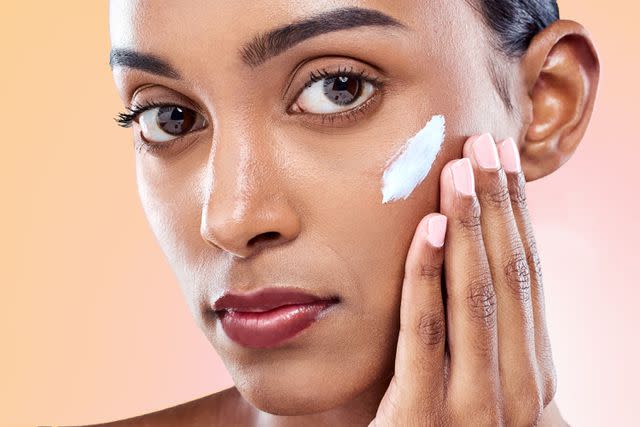Ask a Beauty Editor: Can Sunscreen Dry Out Your Skin?
Synopsis: It can, but it doesn’t have to.
Ever wanted to pick the brain of a beauty editor? Or get beauty product recommendations from someone who has tried them all? You've come to the right place. In our weekly series, beauty editor Hana Hong answers your biggest skin care, hair care, and makeup questions, all submitted by Real Simple readers. Submit your own burning beauty questions here for a chance to be featured.
Reader question: I don’t know if I’m just imagining it, but I feel like my sunscreen is making my already dry skin drier? —Lara Wong
Nope, it’s not in your head. Sunscreen is many good things (protective, preventative, anti-aging, etc.), but inherently hydrating it is not. Don’t get me wrong—I’m not saying sunscreen can’t be hydrating (because it definitely can be!), but it’s not something you generally turn to for supplemental moisture.
In fact, it is likely that sunscreen can make your skin drier, notes Rebecca Marcus, M.D., board-certified dermatologist and founder of Maei MD. Why? Sunscreen (mineral, that is) typically contains zinc oxide in its formulas, which is what actively fights and protects against UVA and UVB burns. However, this power ingredient is also an astringent, meaning it blocks bodily secretions like sweat and sebum. This is fantastic if you are naturally oily, not-so-fantastic if you already suffer from dry skin.

People Images/Getty Images
Oh, and there’s also the fact that titanium dioxide and zinc oxide has a white, chalky texture, which doesn’t do the appearance of dry skin any favors.
But please don’t read this and run with the takeaway that those with dry skin shouldn’t wear sunscreen—everyone should wear SPF year-round, regardless of skin type. And with so many brands and formulations on the market, it’s easier than ever to find sunscreens that are compatible with parched pores. “It’s important to look for a hydrating formula,” says Dr. Marcus. “Choose one that contains ingredients like hyaluronic acid, ceramides, glycerin, niacinamide, and plant oils, as this will help to prevent dryness caused by sunscreen.”
I’ll add that the best choice of sunscreen is one with a creamy base, i.e. Kiehl's Ultra Facial Cream Sunscreen SPF 30 ($38; sephora.com) or Necessaire The Sunscreen ($25; nordstrom.com)—this texture is usually indicative of emollients, which lasts longer on the skin by forming a protective, lubricating barrier on the surface. Another amazing hack? Sunscreen oils, like Supergoop Glow Oil ($38; supergoop.com), which lets you get the required SPF dosage in the most hydrating consistency possible.
It’s also not a bad idea to apply a thick moisturizer before your SPF application—because zinc oxide works by sitting on top of the skin to scatter and deflect UV rays, it won’t make your SPF any less effective (remember to apply it last in your routine).
Lastly, you always have the option of switching to chemical sunscreen, which doesn’t contain the astringent zinc oxide at all. Just bear in mind that some chemicals in chemical sunscreen—are more likely to cause skin irritation (I say this because dry skin sometimes tends to be sensitive—i.e. eczema), so stick with clean formulas and always make sure to conduct a patch test before slathering a foreign formula all over your face.
For more Real Simple news, make sure to sign up for our newsletter!
Read the original article on Real Simple.

